Nepalese honey hunters
Categories: Asia
By Pictolic https://pictolic.com/article/nepalese-honey-hunters.htmlHigh in the foothills of the Himalayan mountains in central Nepal, Gurung honey hunters risk their lives twice a year to climb steep cliffs to collect honey from the largest and most dangerous bees in the world. In this area, people began to collect honey about 12 thousand years ago, and the skills needed to maintain this ancient and sacred tradition have been passed down from generation to generation for hundreds of years. Traveler and photographer Andrew Newey spent two weeks with the tribe and documented their ancient tradition in his Gurung Honey Hunters project.
(Total 24 photos)
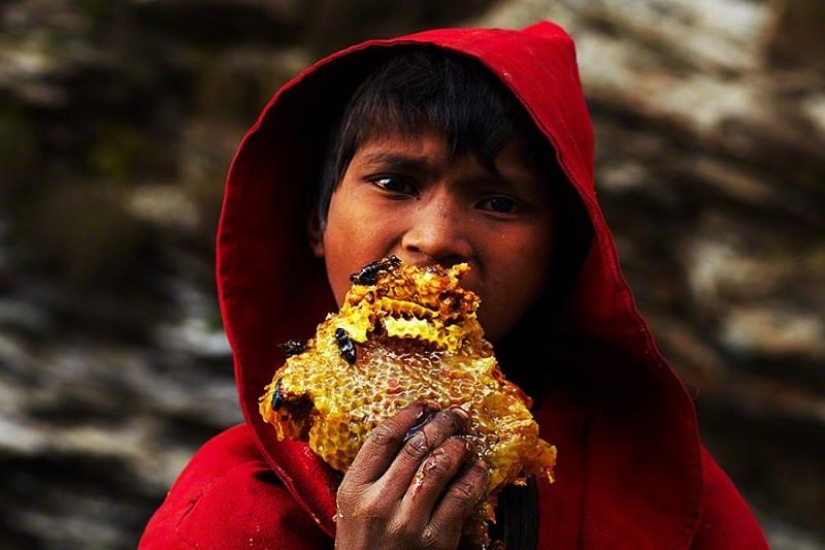
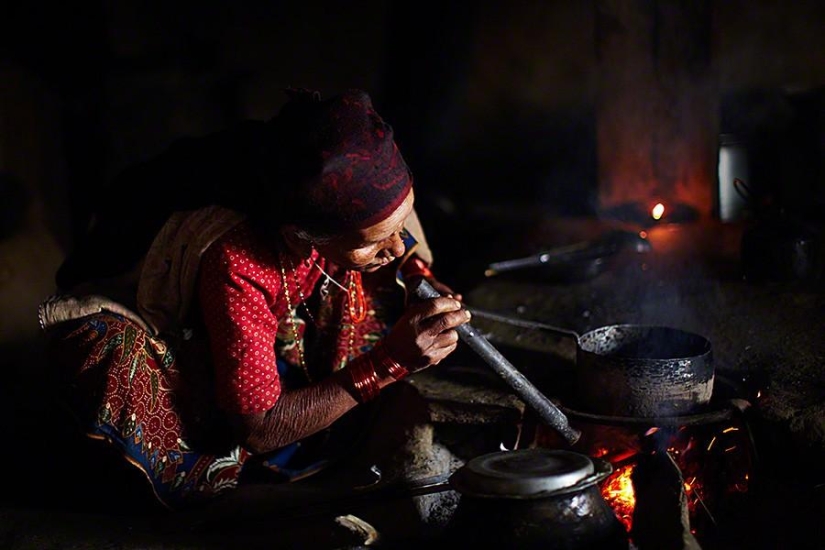
1. The world-famous British photographer Andrew Newey spent two weeks photographing representatives of the Nepalese Gurung tribe, who are engaged in one of the most dangerous trades - harvesting honey in hard-to-reach places.
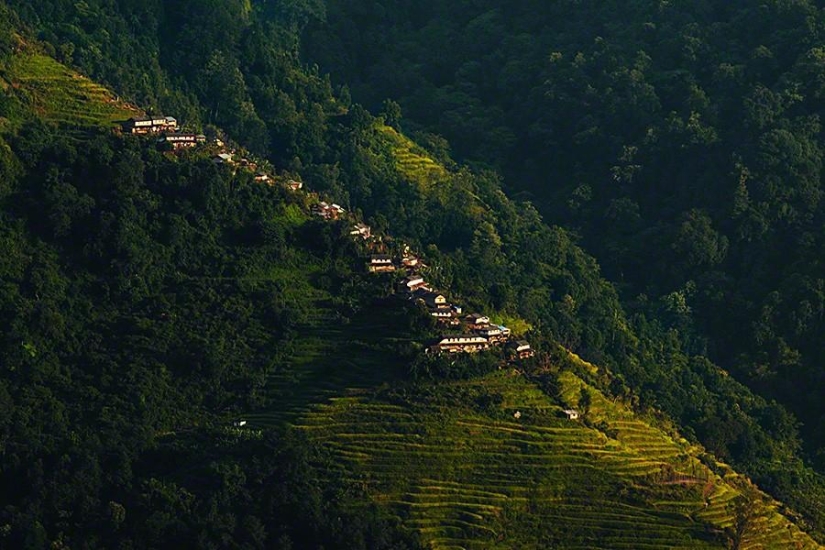
2. Gurungs are a Tibeto-Burmese people living mainly in central and western Nepal (west of the Kathmandu valley), as well as in small numbers in Bhutan and India.
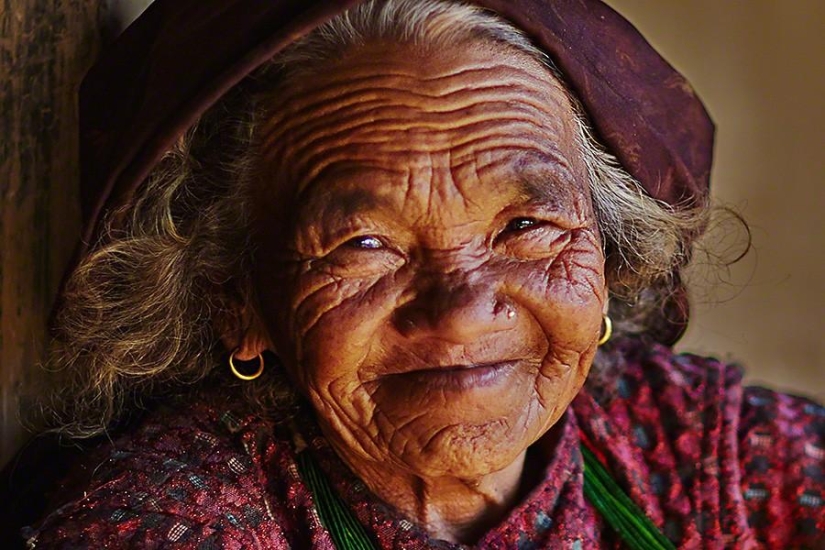
3. Today, the number of this ethnic group is just over 600 thousand people.
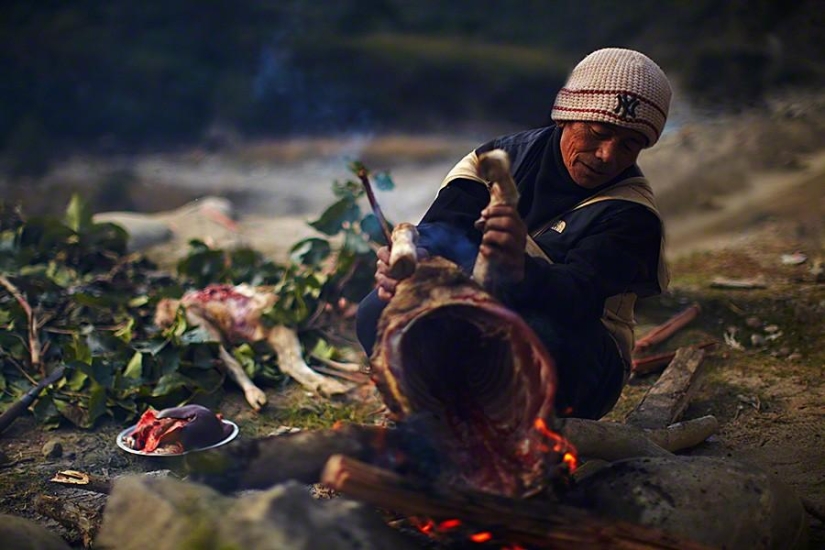
4. The main occupations of the representatives of this nationality are agriculture, cattle breeding and handicrafts. But there are other crafts, the origins of which go deep into antiquity.
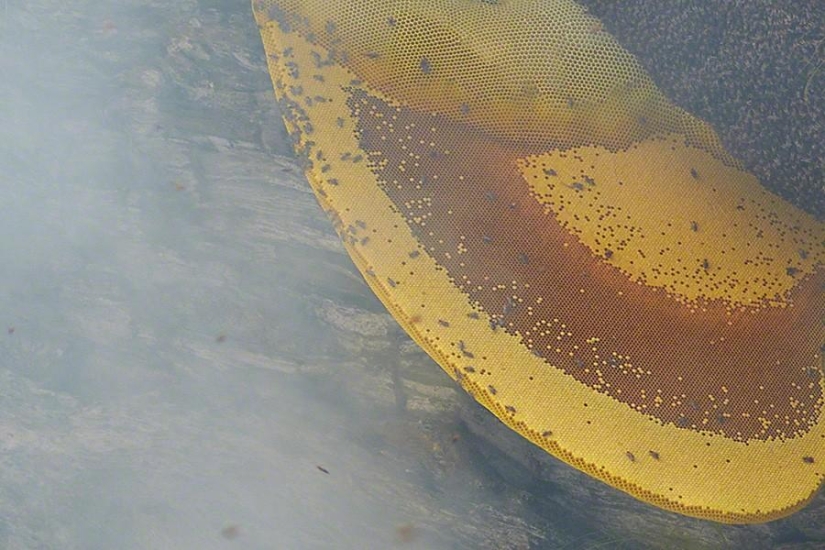
5. Twice a year, Gurung honey hunters climb steep cliffs in central Nepal and begin the traditional honey harvest.
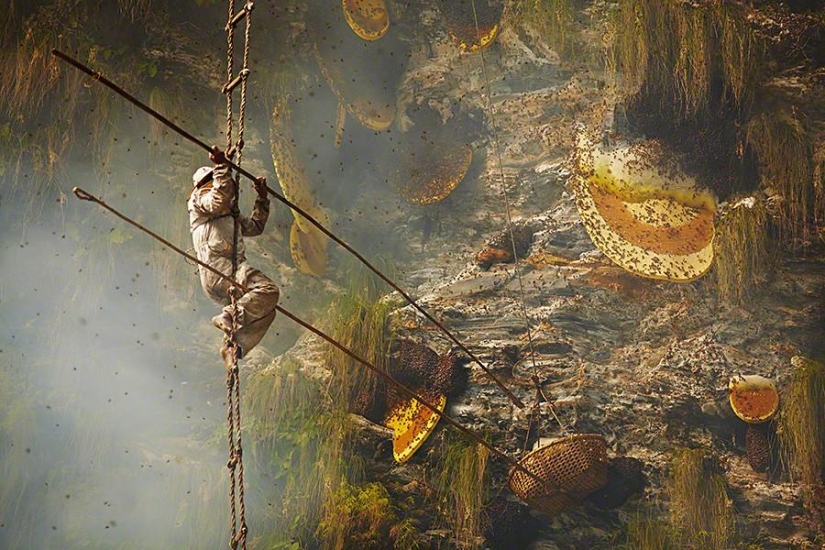
6. They take with them the same tools as their ancestors - hand rope ladders and long, sharp bamboo poles, which they use to carefully break off honeycombs and place them in hanging baskets.
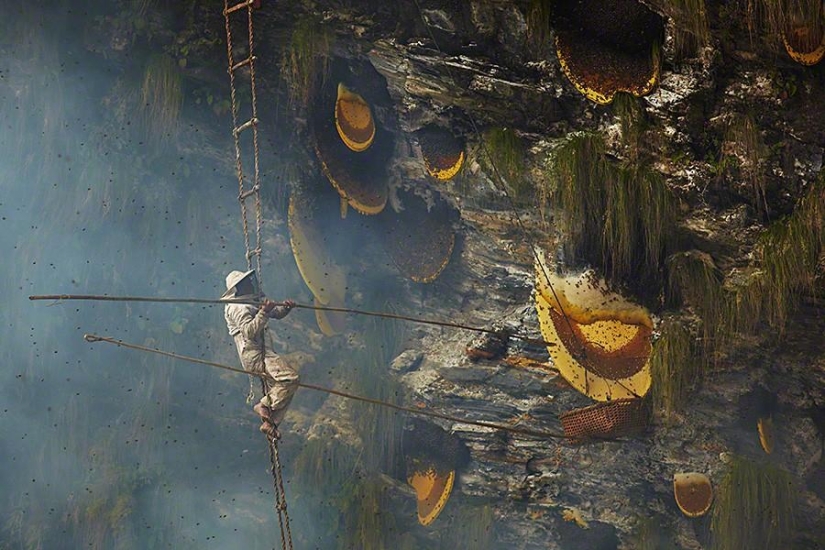
7. Baskets with “prey” are lowered down, where honey is squeezed out of the honeycombs without resorting to its heat treatment.
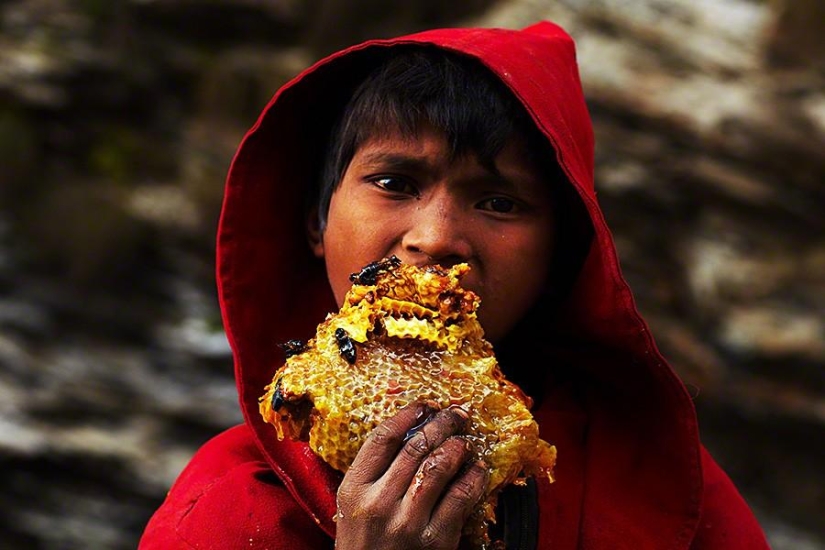
8. Wild bees in the Himalayas belong to the families Apis Laboriosa and Apis Dorsata and are unusually large in size - their length can reach three centimeters.
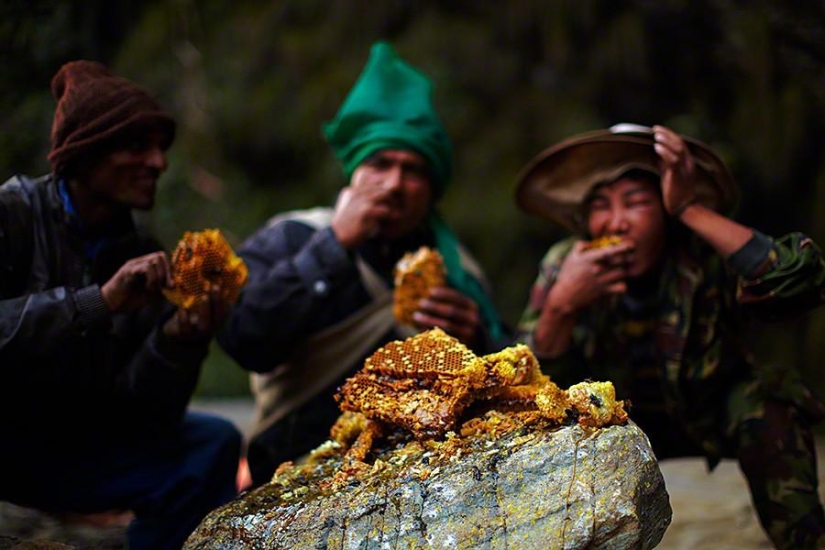
9. Collected on the rocks "sweet gold" is organically very rich honey.
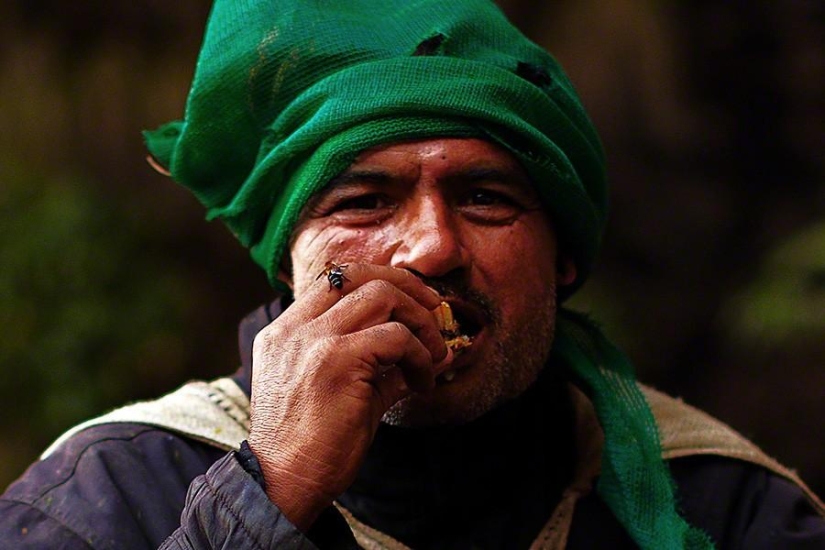
10. And since Himalayan honey is extracted by a method that does not include heat treatment, this guarantees better preservation of the natural composition of honey.
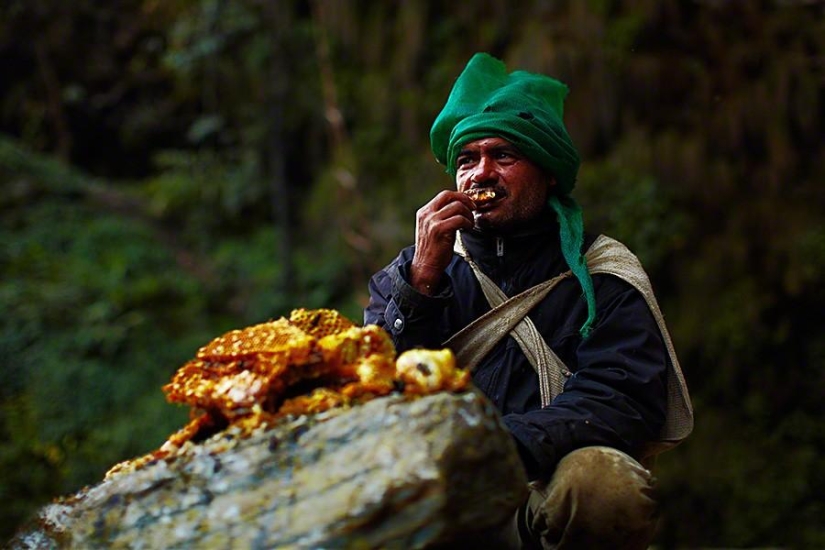
11. Due to the special components that these bees collect in the spring, Himalayan spring honey is especially expensive. It is usually exported to Japan, South Korea and China.
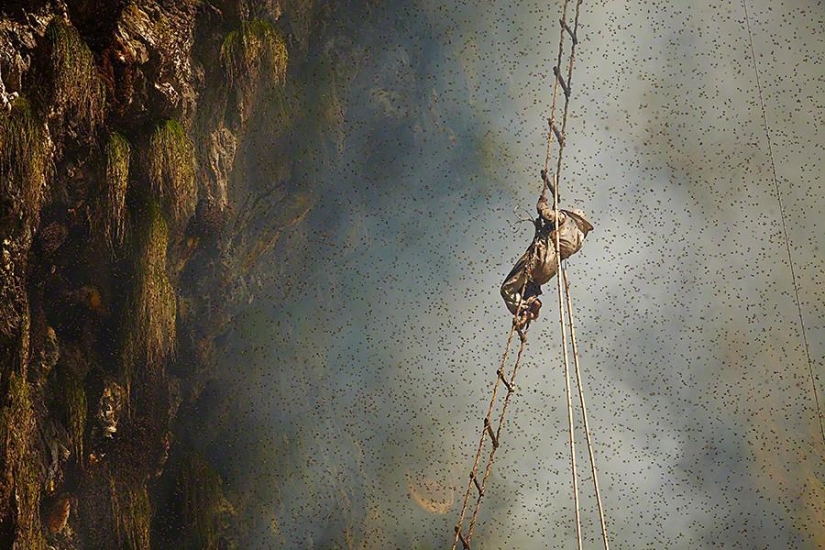
12. Climbing up the rickety ladders, the honey hunters drive the bees out of the hives with the help of smoke and take their sweet prey.
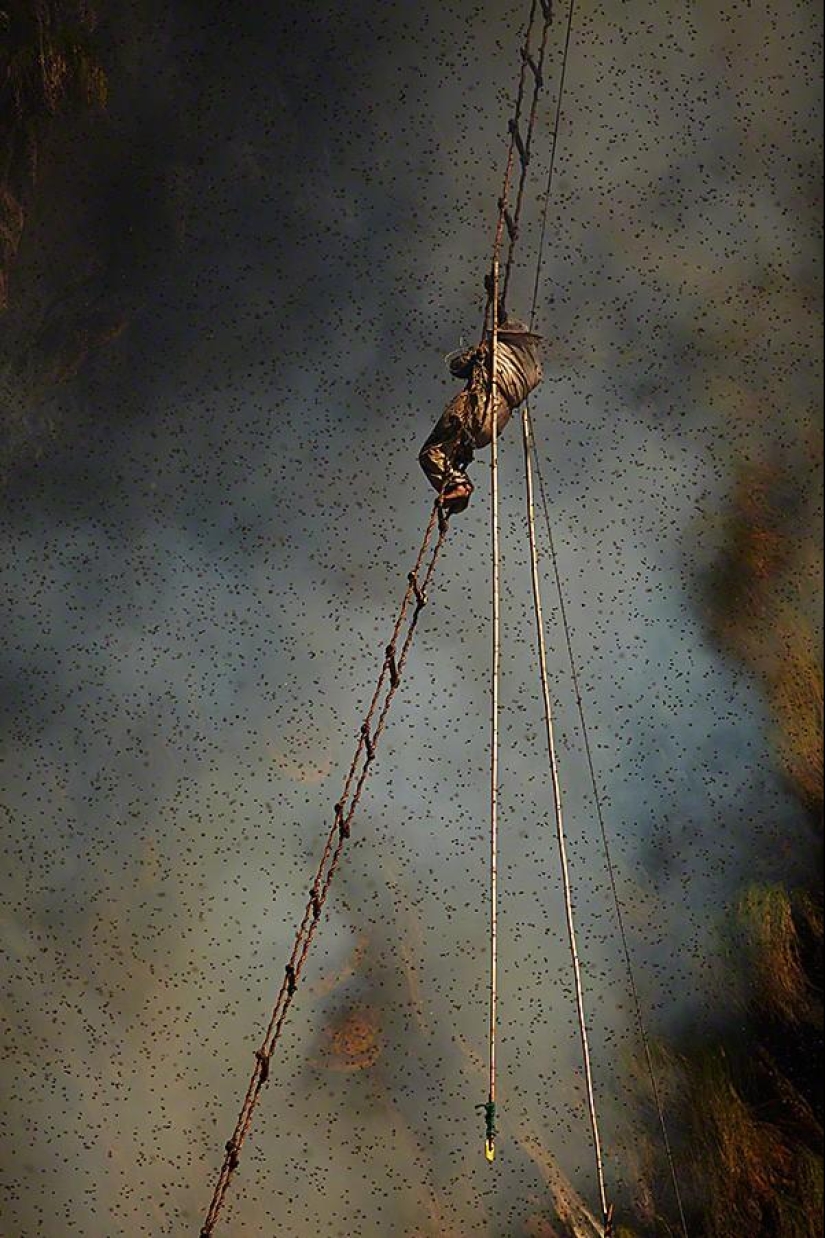
13. The danger of this activity is difficult to underestimate. In addition to the risk of falling, hunters take honey from the largest bees in the world.
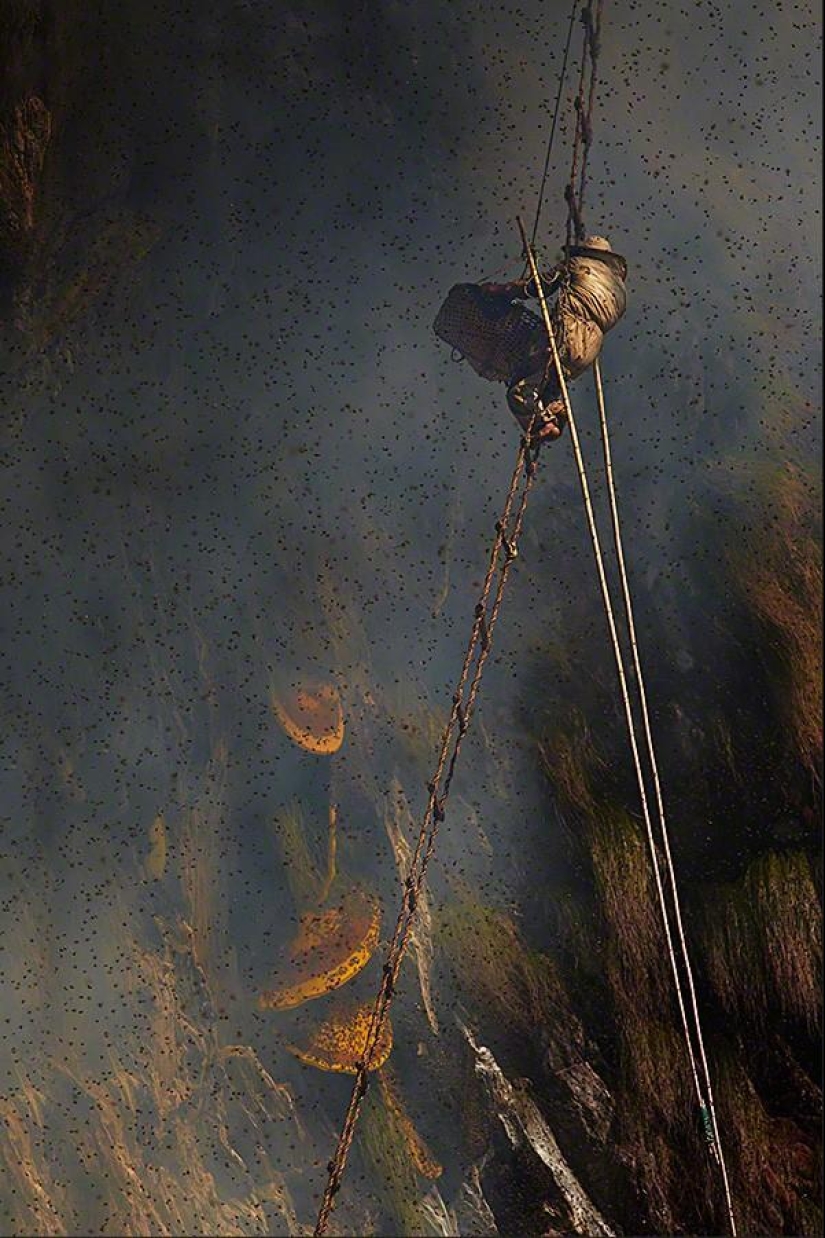
14. Despite all the precautions, it is almost impossible to completely avoid bites.
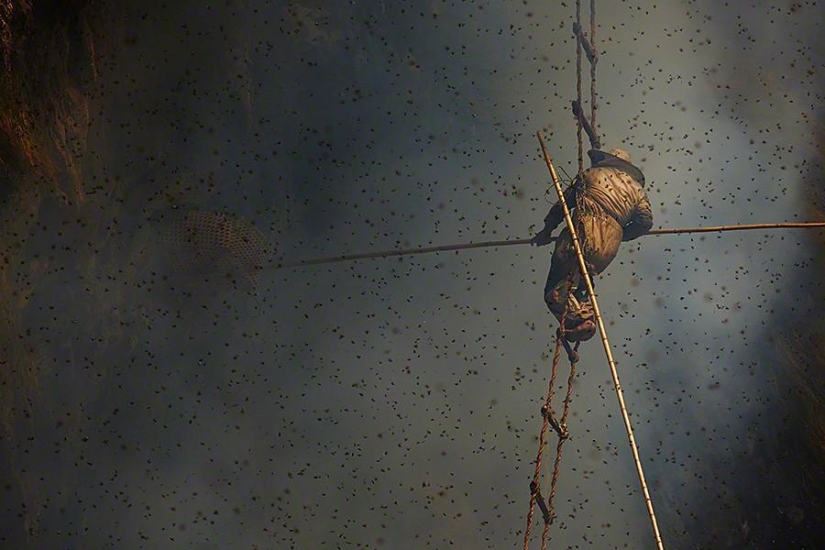
15. Such an unusual honey hunt usually lasts several hours and attracts many tourists who love to watch a dangerous event.
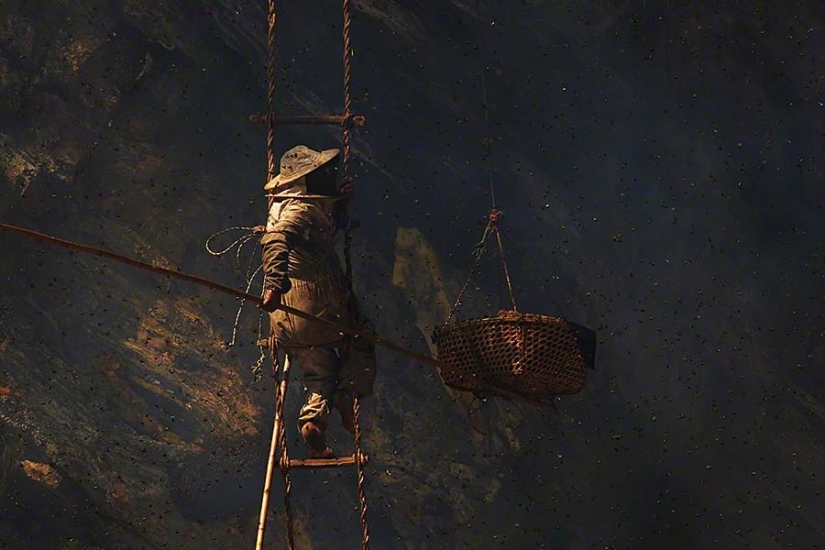
16.
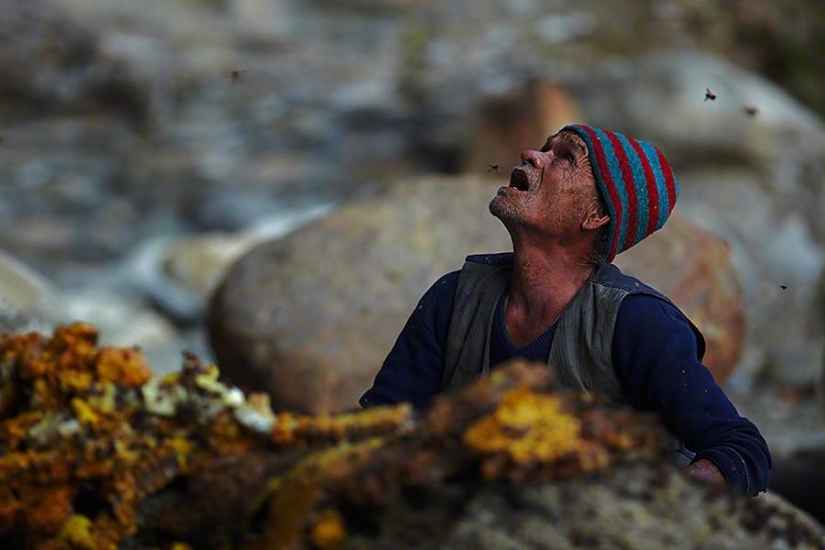
17.
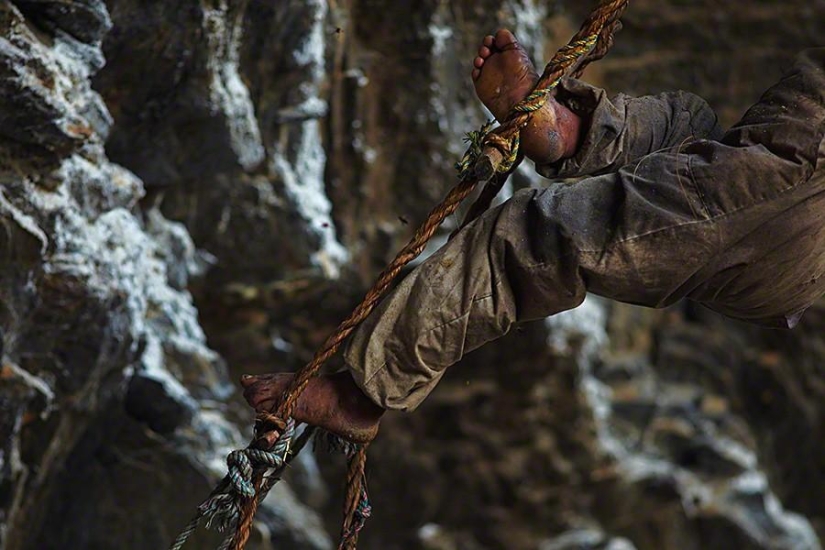
18.
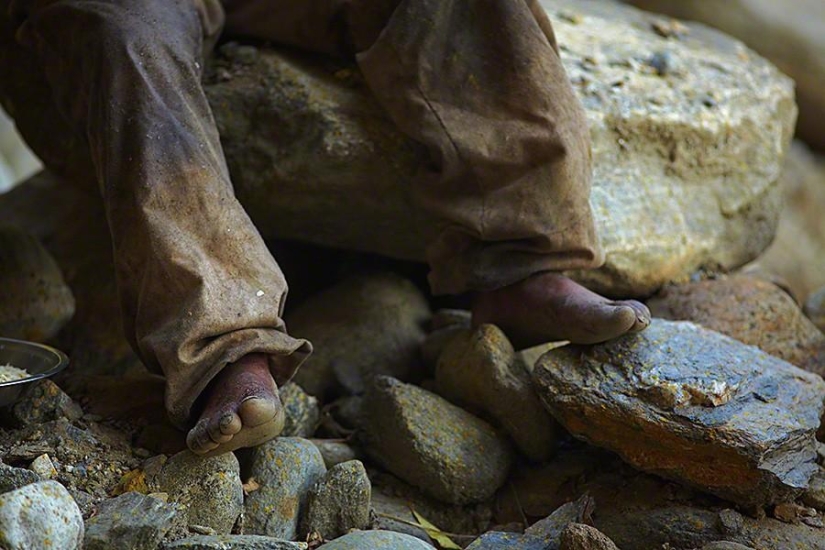
19.
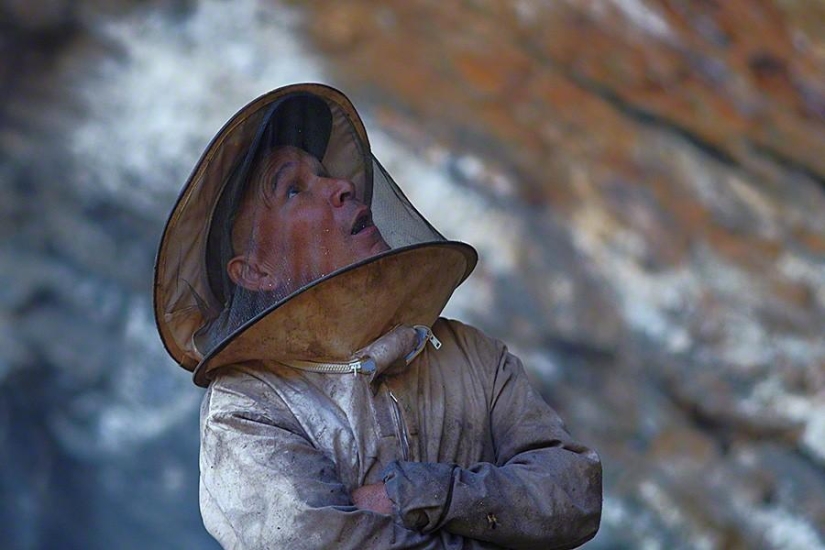
20. Hunting for honey, or, in our opinion, beekeeping, is one of the oldest professions in the world, known for 8000 years. In Spain, they found a cave painting, where people are drawn at the process of collecting honey.
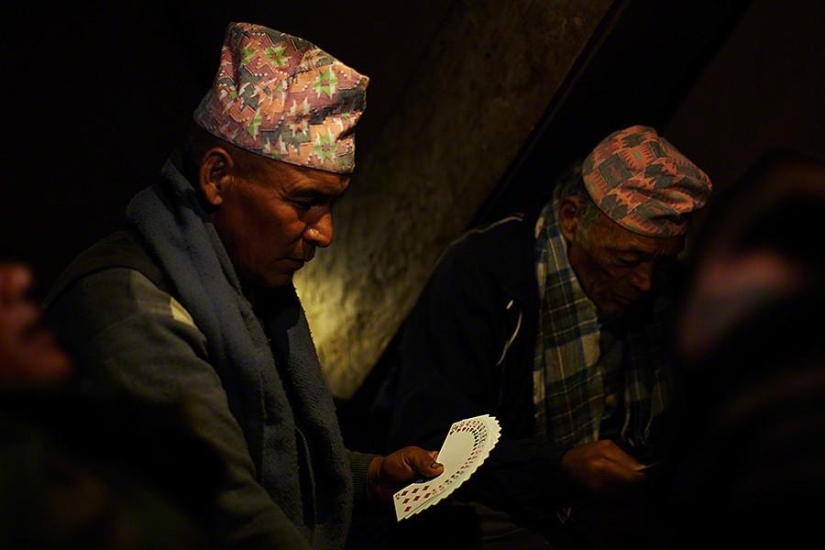
21.
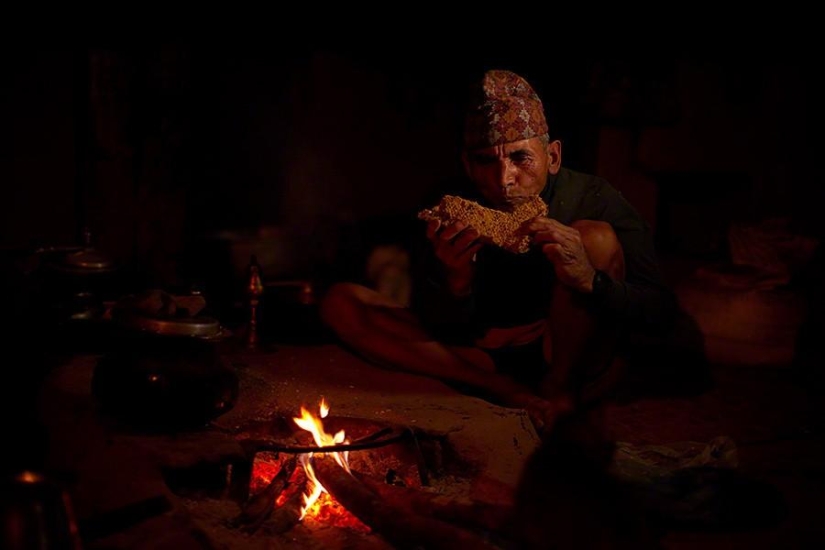
22.
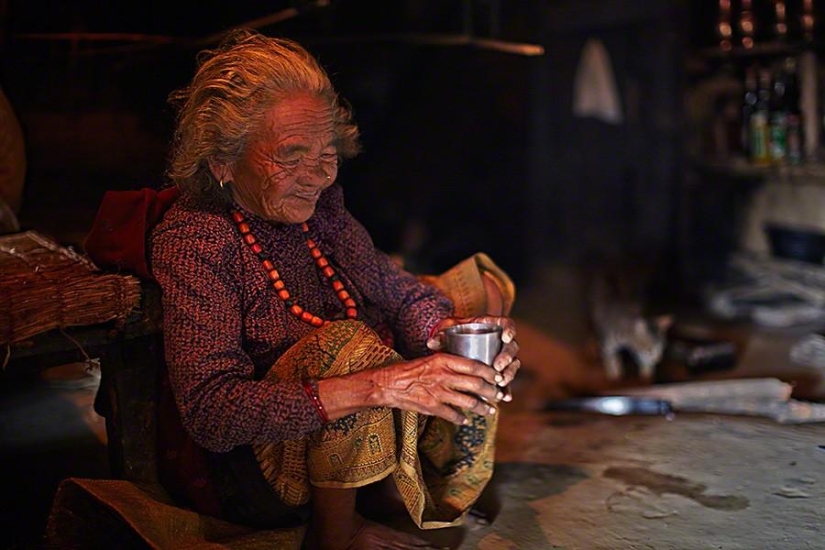
23.
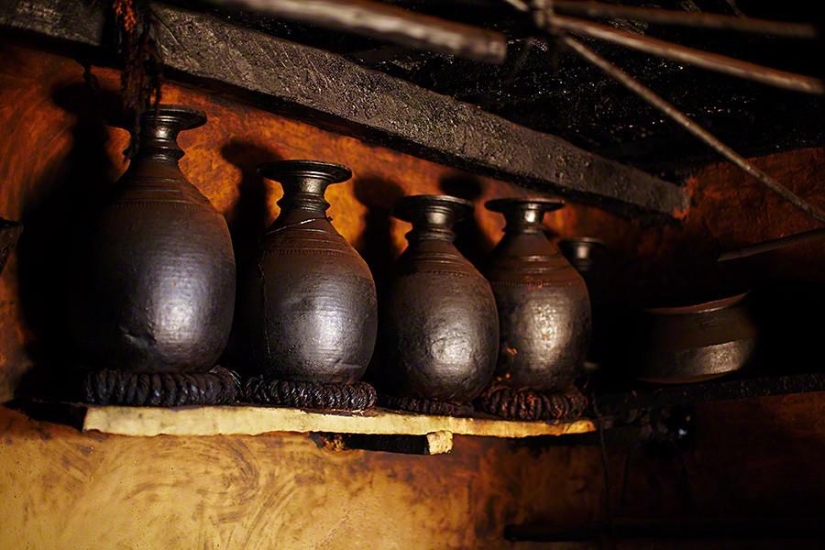
24.
Keywords: Honey | Nepal | Bees
Post News ArticleRecent articles

It's high time to admit that this whole hipster idea has gone too far. The concept has become so popular that even restaurants have ...

There is a perception that people only use 10% of their brain potential. But the heroes of our review, apparently, found a way to ...
Related articles

Traditionally, the middle of August – a time when beekeeping comes the height of the honey harvest, and they start to swing ...

It is known that on Halloween people often dress up in a plague doctors, or vampires. But it seems that this year the trends will ...

"If there is honey, then there is no honey right away"-even the most important sweet tooth Winnie-the-Pooh could not solve the ...

New Year's is a time to surprise and delight loved ones not only with gifts but also with a unique presentation of the holiday ...